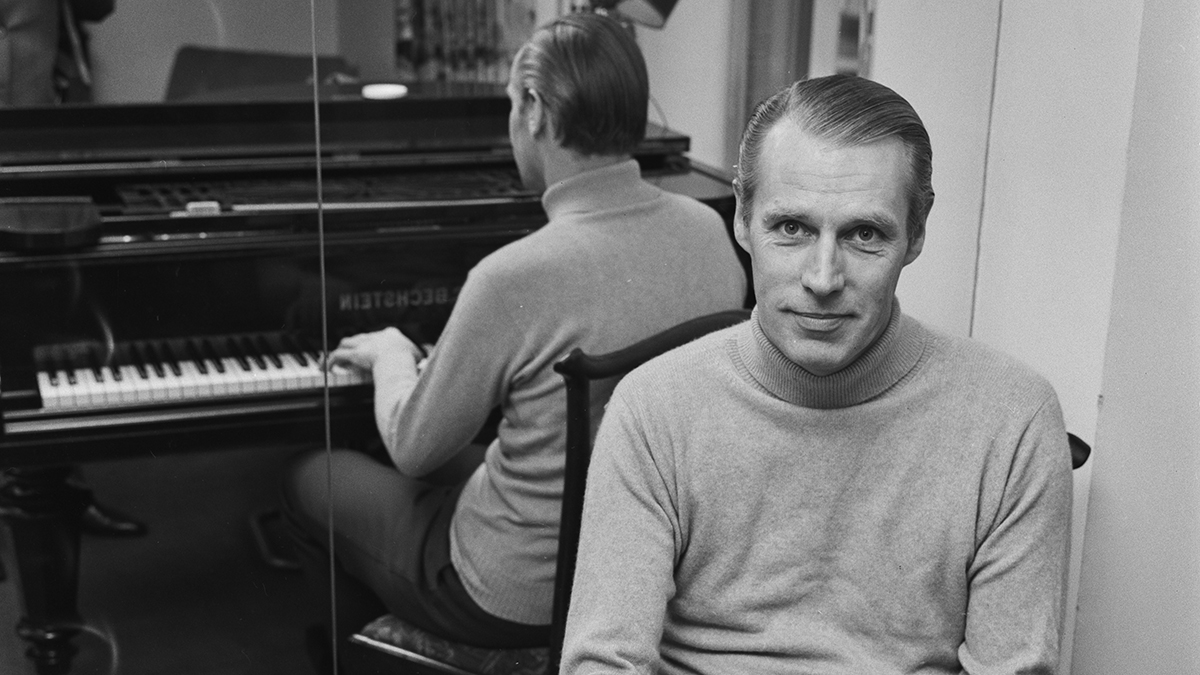George Martin played on more Beatles songs than you think: are these his best piano solos and orchestral arrangements?
David Bennett lists the 27 songs that feature the Fab Four's producer's greatest contributions
Want all the hottest music and gear news, reviews, deals, features and more, direct to your inbox? Sign up here.
You are now subscribed
Your newsletter sign-up was successful
Not for nothing is George Martin frequently referred to as ‘the fifth Beatle’. Yes, he was the band’s producer, but that title alone doesn’t do justice to the level of involvement he had on the band’s records, as documented in this recently published video from David Bennett.
Here, Bennett runs through the 27 Beatles songs that he believes George Martin contributed the most to. First up, he deals with his keyboard performances, which came when Lennon and McCartney needed someone who could play the kind of intricate parts that were beyond them. That’s why you hear Martin on songs such as Lovely Rita, Good Day Sunshine and, particularly memorably, In My Life.
Asked to write a piano solo for the song, Martin soon realised that the one he’d composed was too difficult to play at the tempo required. So, he used the ‘wound-up piano’ recording technique that had served him well when he worked with Billy J Kramer.
This involved the engineers dropping the tape down to half speed and Martin playing down the octave. Then, when the recording was played back at regular speed, the piano went back up an octave and created the ‘harpsichord’ type tone that you’ll hear on In My Life.
Martin used the same technique for the piano solo on Rocky Raccoon, and played harpsichord for real on Fixing a Hole and Because (in the latter case an electric model). He also jumped on the harmonium for various songs, including Being for the Benefit of Mr Kite, and it was also Martin who created Kite’s circus sound atmospherics by cutting up and reassembling clips of existing steam organ recordings (sampling, effectively).
It was perhaps as an orchestrator, though, that Martin had his biggest musical impact. A classically trained oboist, he composed, arranged and conducted on classic songs such as Yesterday, Eleanor Rigby, I Am The Walrus and Strawberry Fields Forever.
As Bennett points out, it’s now common practice for producers to receive songwriting credits and royalties even if their contributions are relatively minimal, but this wasn’t the case during Martin’s time with the Fab Four. For him, though, it wasn’t about the money: “I’ve been awfully lucky,” he told BBC Radio 4’s Desert Island Discs in 1995. “As a whole I’ve had a wonderful life - I’ve worked with the most wonderful people, worked with the greatest of artists and I’m very fortunate. I’ve got no grudges at all.”
Want all the hottest music and gear news, reviews, deals, features and more, direct to your inbox? Sign up here.


I’m the Deputy Editor of MusicRadar, having worked on the site since its launch in 2007. I previously spent eight years working on our sister magazine, Computer Music. I’ve been playing the piano, gigging in bands and failing to finish tracks at home for more than 30 years, 24 of which I’ve also spent writing about music and the ever-changing technology used to make it.